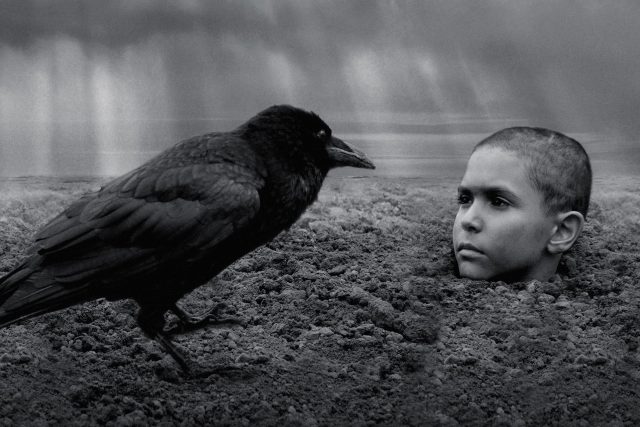The Painted Bird: An Eastern European Film, by David Bax

Before Václav Marhoul’s The Painted Bird (an adaptation of Jerzy Kosiński’s 1965 novel) is ten minutes old, our young protagonist (Petr Kotlár) has had his pet stolen from him and burned alive, been beaten, discovered the corpse of his abusive aunt and accidentally burned his home to the ground. It’s an unforgiving and cruel series of events but what’s really astonishing is that the pace of brutality doesn’t ease up at any point for the next two hours and 50 minutes. It’s a cavalcade of inhumanity that wholly fails to justify its existence as anything else.
In the midst of the Second World War, the unnamed boy passes from one de facto caretaker to the next. Each of these characters gets their own chapter heading and many of them lend The Painted Bird its star power. Udo Kier is a miller, Stellan Skarsgård a soldier, Harvey Kietel a priest, Julian Sands a craftsman and, in the movie’s biggest wink, Barry Pepper plays essentially the evil twin version of his Saving Private Ryan sharpshooter. Each of the child’s keepers is–be it by malice, neglect or other defect–equally monstrous. There are no good people in Marhoul’s world and he mocks you for holding out hope that one will materialize.
It takes a particularly unpleasant movie to make me long for a depiction of brutality like that in Jennifer Kent’s The Nightingale from 2018. But Kent’s violence and repeated violations are illustrative; they deepen her film. Marhoul’s savagery only shocks; it is the film. His motivations are immoral. For what it’s worth, though, The Painted Bird is artfully composed and presented.
Vladimír Smutný’s black and white cinematography is painterly. Along with the similarly stark production design, Smutný makes confident and efficient use of light, shadow and depth of field. For all of The Painted Bird‘s indulgences, it is remarkably visually unembellished.
Marhoul fills in the spareness with evocative sound design. Given the scant dialogue–the boy himself does not speak, even when asked direct questions–there’s plenty of room on the soundtrack to be filled in with the ominous sounds of nature and man, from whipping wind to roaring flames to shrieking birds to cracking whips.
It’s too bad there are no real opportunities to enjoy these touches. When you’re not recoiling at the depravity of The Painted Bird, you’re anticipating it. With each new character we meet, we’re just waiting for the abusive other shoe to drop. Before long, this inevitability and the unceasing, increasing barbarity shed any hope of being harrowing and instead turn into a joke. This self-important arthouse riff on A Serbian Film plays like a fake movie in another movie that’s parodying pretentious, miserablist cinema.




























